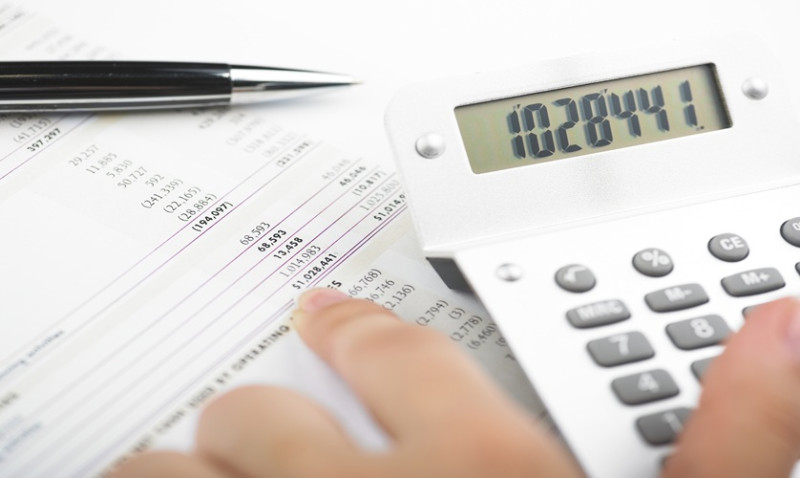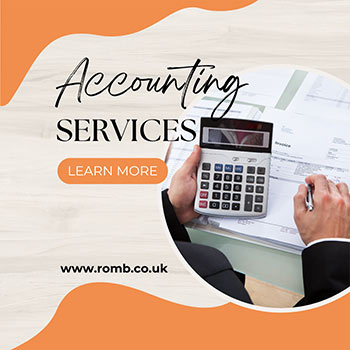
Whether you're a professional tradesman quoting a job, a DIY enthusiast planning your next renovation, or a designer managing client projects, accounting plays a vital role in keeping everything on track. While it might sound like something only big corporations worry about, accounting is just as crucial for independent professionals and small businesses operating across the UK. Wondering why you need it? Let's dive into the key reasons why accounting should be a core part of your toolkit.
1. Keeping Your Finances in Check
At its core, accounting is all about understanding your money — what’s coming in and what’s going out. As a tradesperson or designer, you deal with materials, labour, tools, and travel. These costs add up fast. Without a clear record, it’s easy to spend more than you realise or underquote, cutting into your profits. Accounting helps you track all these expenses so you can plan, budget and price your services accurately.
For DIY enthusiasts or clients doing their first home project, keeping track of where your renovation budget is going stops the project from spiralling out of control. With proper accounting records, you know exactly how much you've spent on paint, furniture, or builders, making it easier to stick to a realistic plan.
By having complete visibility into your financial situation, you gain more confidence in your decisions. Skipping accounting often leads to late bills, forgotten invoices or unpaid taxes — none of which are good for business or your personal finances.
2. Making Better Business Decisions
Imagine you’re a decorator thinking of investing in higher-end tools or advertising your services. How do you know if you can afford it or if it will provide a return? This is where accounting steps in. With real-time financial data, you can evaluate the costs and benefits of any decision with clarity and confidence.
For architects or interior designers handling multiple clients, accounting helps you understand which projects are more profitable, how much time you’re spending for each pound earned, and whether to adjust your pricing. You’re no longer guessing — you’re using facts and figures to guide your growth.
Even for DIYers, if you're flipping a property or planning a second renovation, knowing exactly how much you've invested and made on your first project is essential for smart planning.
3. Staying Legal and Compliant
Whether you’re VAT registered, self-employed or operating as a limited company, the UK has strict financial reporting regulations. HMRC expects accurate records, regular tax submissions, and payments made on time. Miss this and you risk fines or audits — something no one wants.
Accounting ensures that you not only stay within the law but also take full advantage of legal deductions and allowances. For example, you might be able to claim expenses for tools, fuel, mobile phone usage, or even a portion of your home office if you're a designer working from home.
Using cloud-based accounting software such as QuickBooks, Sage or Xero makes it easier than ever to maintain digital records that meet HMRC’s Making Tax Digital (MTD) requirements — helping you avoid paperwork stress at the end of the year.
4. Improving Cash Flow and Planning Ahead
Cash flow is often the biggest challenge for tradesmen and small business owners. You might complete a large kitchen refurbishment, but if your client delays payment and you’ve already paid your suppliers, your bank balance suffers. Accounting helps you stay on top of when payments are due and how to chase invoices efficiently.
It also helps you forecast income and expenses, so you’re prepared for months with lower work volume or larger upcoming purchases. Instead of reacting to shortages or surprises, you’re pro-active — a huge win in an industry where seasonality and slow payers can catch you off guard.
Planning also gives you room to invest in future growth, whether through training, upgrading equipment, or hiring an apprentice. These are moves that can push your business forward — and they start with knowing your numbers.
5. Building Business Credibility
Good accounting presents you as a serious, professional outfit — whether you're pitching for a client, applying for a trade membership, or applying for a business loan. When you show well-maintained financial records and accounts, you gain trust from clients, suppliers, and financial partners.
Designers or home planners recommending contractors also prefer working with professionals who can produce clear estimates, invoice properly, and manage payments — it keeps projects running smoothly and builds strong partnerships across the sector.
Even DIYers selling their home after a renovation benefit from good cost records. You'll be able to demonstrate the value added, important for estate agents, surveyors or potential buyers considering your asking price.
6. Growing with Confidence
If your long-term ambition includes taking on more staff, expanding your service area, or even opening a shop or studio, accounting becomes even more critical. Every step of growth needs capital, and every investor or lender will want to see healthy accounts before committing.
Having a structured accounting system in place shows you’re ready for the next level. It also helps you delegate tasks more easily, like hiring a bookkeeper or tax adviser, which frees up your time to focus on your craft or design work — not the paperwork.
7. Easy Tools Are Now Available
Accounting isn’t like it used to be. Today, there are tools and apps specifically designed for non-accountants. Whether it’s an app on your phone to snap receipts or an all-in-one platform for sending invoices, reconciling your bank and filing taxes, it's now easier, faster and more affordable than ever.
Many apps cater specifically to industries like trades, design and construction, offering features such as expense tracking, quoting, project management and mileage logs. While still a professional field, accounting has never been more accessible to people running their own businesses or managing home projects.
Accounting Benefits Summary Table
| Benefit | Impact | Who It Helps |
|---|---|---|
| Track expenses and income | Gain control over job costs and personal budgets | Tradesmen, DIYers, Designers |
| Support better decision making | Choose the right projects and investments | Architects, Business Owners |
| Ensure legal compliance | Avoid HMRC penalties and take advantage of tax deductions | All professionals |
| Improve cash flow | Know what’s due in/out and plan ahead | Builders, Decorators |
| Boost professionalism | Win more client trust and form strong partnerships | Designers, Contractors |
Conclusion: Accounting is for Everyone — Especially You
Often seen as dull or confusing, accounting is actually one of the most empowering tools available to professionals in design, renovation, and trades. Whether you’re pricing a bathroom refurb, running a freelance interior design studio, or taking your first stab at redoing the kitchen, a simple accounting system can make all the difference.
In a sector where margins matter and word-of-mouth drives business, keeping your finances tight isn’t just smart — it’s essential. Start simple, stay consistent, and remember: good accounting isn’t about numbers. It’s about knowing your worth and building from there.





